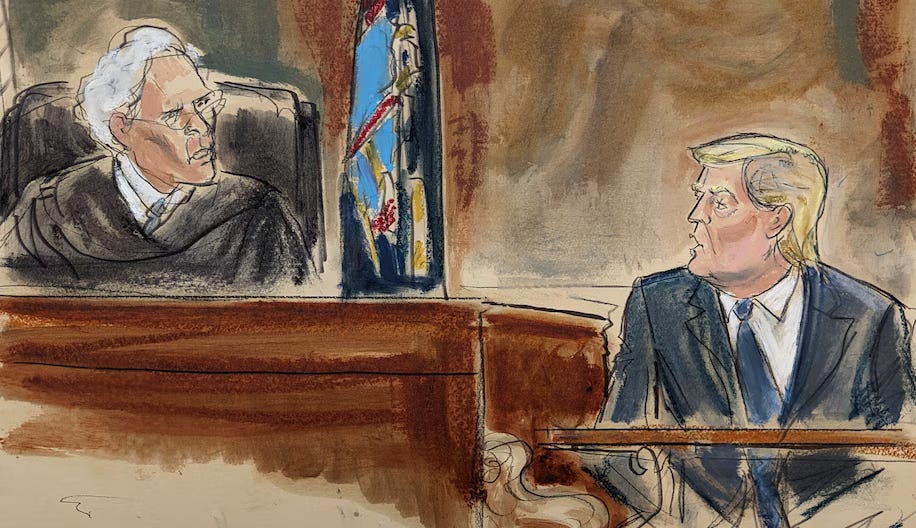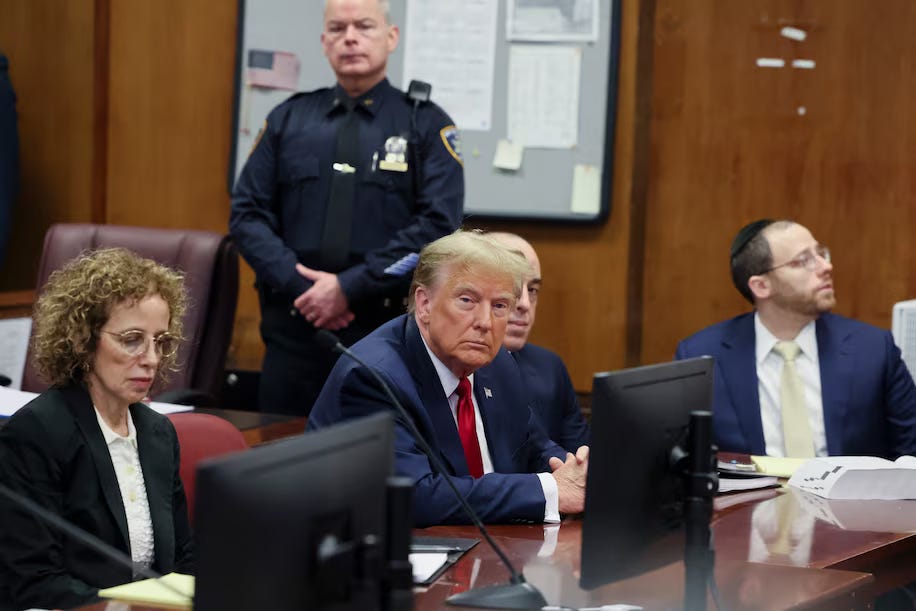Donald Trump slapped with $350 Million penalty in NY State Civil Fraud Lawsuit
The Legal, Political and Electoral Repercussions for the Former President and Business Tycoon: A Comprehensive Analysis.

Landmark Ruling in New York: Trump at the Receiving End
In an unprecedented legal verdict, a New York Judge in a civil fraud lawsuit has ordered Donald Trump, the former U.S. President and business tycoon, to pay a hefty $350 million penalty. With accrued interest, this amount could surge to over $450 million. This decision, delivered by Justice Arthur Engoron on Friday (February 16), brings to a close a dramatic civil trial characterized by fervent clashes between the defendant's legal team and the judiciary. Although no one could end up in jail in this case, spearheaded by the NY Attorney General Letitia James, it significantly impacts the finances of the Trump Organization, which is estimated to be valued at $2 billion, before accounting for these liabilities.
The Trial's Drama— Trump clan in witness box
The trial, marked by its theatrical nature, featured intense confrontations between the defendant's legal team and Judge Arthur Engoron, capturing the attention of both courtroom spectators and the public. Donald Trump, the focal point of the lawsuit, took the witness stand, an action followed by appearances from his sons, Donald Trump Jr. and Eric Trump, as well as his daughter, Ivanka Trump, subsequently. These testimonies added layers of complexity and familial dynamics to the proceedings. The legal drama culminated on Friday in a decisive ruling by Judge Engoron, who imposed a substantial financial penalty against Trump and enacted a three-year ban preventing him from serving as a director in any company or securing loans from New York-based banks. This resolution not only highlighted the gravity of the accusations but also underscored the legal repercussions of fraudulent business practices.
Inflated Asset Values and Financial Deception
At the heart of this legal battle was the strategic inflation of asset values by the defendant's organization, a tactic employed to mislead banks and financial institutions into offering favorable loan conditions. This deliberate overvaluation of properties enabled the borrowing of substantial sums at preferential interest rates, constituting a clear case of financial deception. Despite the organization's fulfillment of its loan obligations, with all borrowed funds being fully repaid, this did not mitigate the Court's decision to impose a significant penalty. The Judge's ruling underscores the principle that financial integrity and honesty in representations are paramount, regardless of the outcome of the loans. This stance reflects a commitment to upholding the rule of law and ensuring that financial transactions are conducted transparently and ethically, setting a precedent for future conduct within the financial and business sectors, especially for those who hold or have held high public offices.
Significant Restrictions and Penalties
Business Prohibitions: The former President faces a three-year ban from engaging in business activities in New York, a development that could have far-reaching implications for his business empire.
Financial Penalties for Family Members: In addition to the primary judgment, Donald Trump Jr and Eric Trump, sons of the former president and co-defendants in the case, have each been fined $4 million. They also face two-year bans from conducting business in New York, underscoring the widespread impact of the ruling on the family's business interests.
Avoidance of Maximum Penalties: Notably, the Court decided against revoking the business licenses of the former President's companies. Such a measure, often referred to as the "corporate death penalty," could have led to the dissolution of his business empire, signaling the court's restraint in exercising its full punitive powers.
Reaction and Repercussions
Donald Trump, the defendant and a leading contender for the Republican Party's nomination in the 2024 Presidential election, emphatically announced his intention to appeal from his estate in Florida, wile denouncing the judgment as the outcome of a politically motivated witch-hunt. This ruling has triggered a spectrum of responses, ranging from vehement criticism by Trump's sons and his supporters to praise from legal experts who underscore the principle that the law is paramount and applies equally to everyone, regardless of their position or status. This diverse array of reactions highlights the deep divisions and the significant impact of the legal decision within political and social spheres.
A Legal Precedent?
This case sets a notable legal precedent, highlighting the potential consequences of fraudulent business practices. The imposition of financial penalties, combined with restrictions on business operations, underscores the judiciary's role in maintaining corporate integrity and accountability. The decision also illustrates the complex interplay between legal proceedings and their broader political and social implications.
Ongoing Legal Challenges and Their Political Implications
As Donald Trump gears up to challenge the Court's decision, this case emerges as a pivotal lesson in corporate responsibility and ethical governance for business executives. The call for integrity and transparency in business transactions is unequivocally highlighted, urging a reevaluation of ethical standards within the corporate arena, especially for public figures like Trump. This moment in legal history not only signifies a crucial juncture but also catalyzes a wider contemplation on ethical practices in business management.

What lies ahead for Trump?
However, the legal woes for the former President are far from over. He is potentially facing four criminal trials, with the first one, related to the New York State case concerning the Stormy Daniels hush-money scandal, slated to begin on March 24th, with the selection of the jury. Additionally, the constitutional debates regarding his disqualification under the 14th Amendment and the scope of presidential immunity for actions taken while in office are pending before the U.S. Supreme Court. The hush-money case, expected to last approximately six weeks, will necessitate his physical presence in Court, significantly affecting his campaign activities. While the ultimate legal, political, and electoral consequences of these proceedings remain uncertain, it is clear that the financial penalty in this case, coupled with the $83 million in damages he has been ordered to pay to E. Jean Carroll for defamation and harassment, casts a shadow over the morale within his camp.




